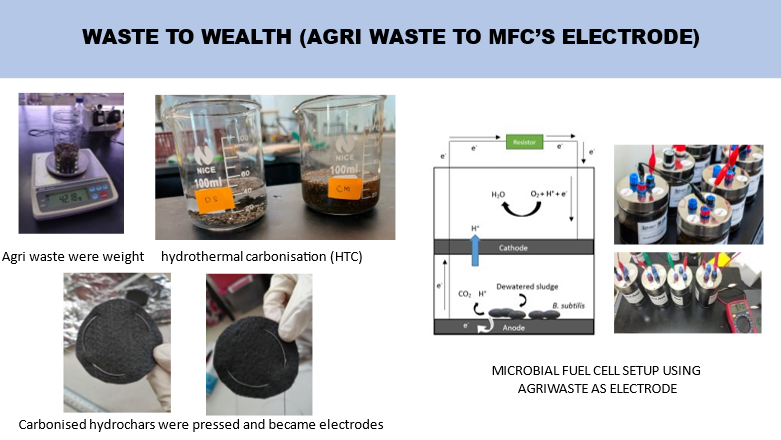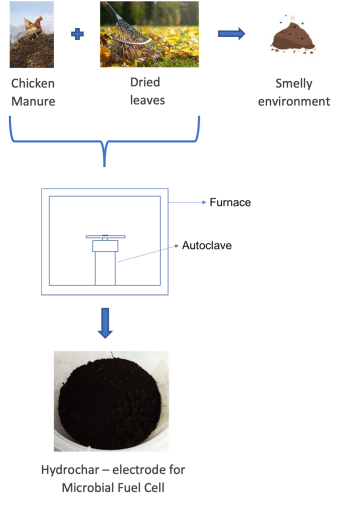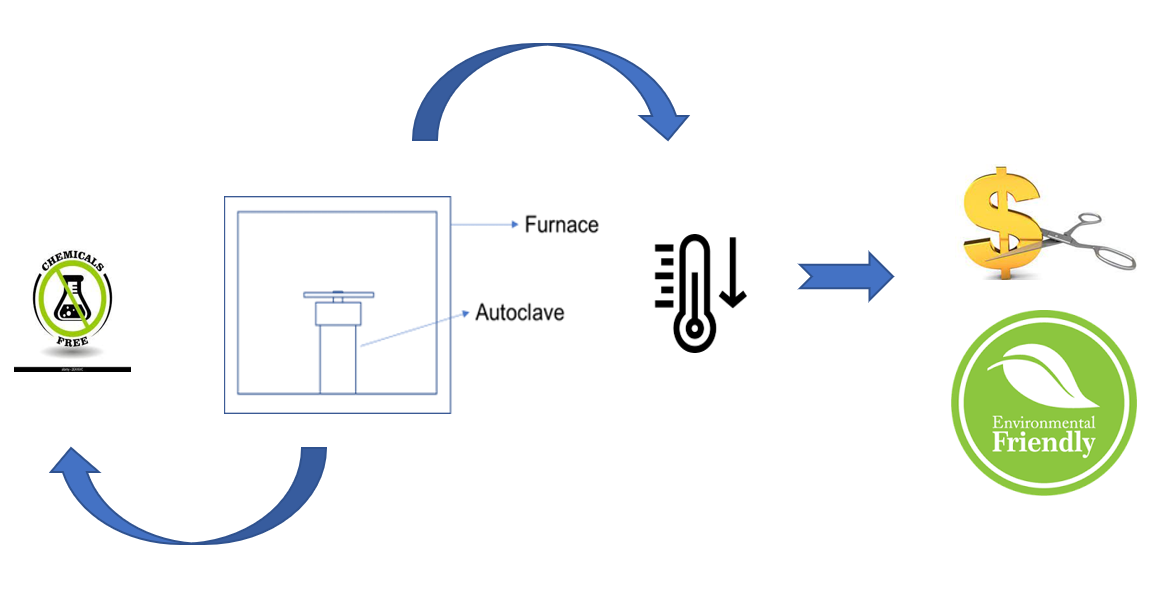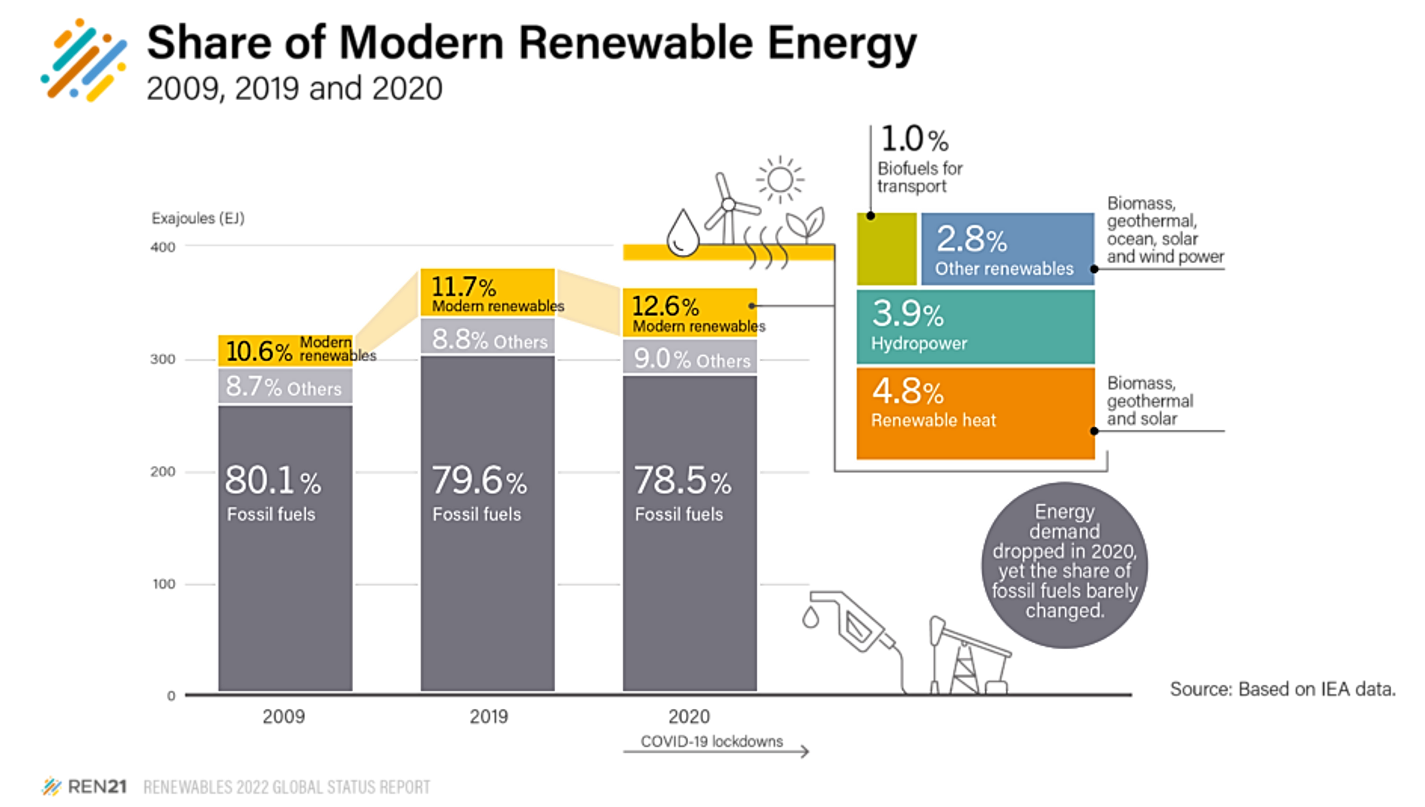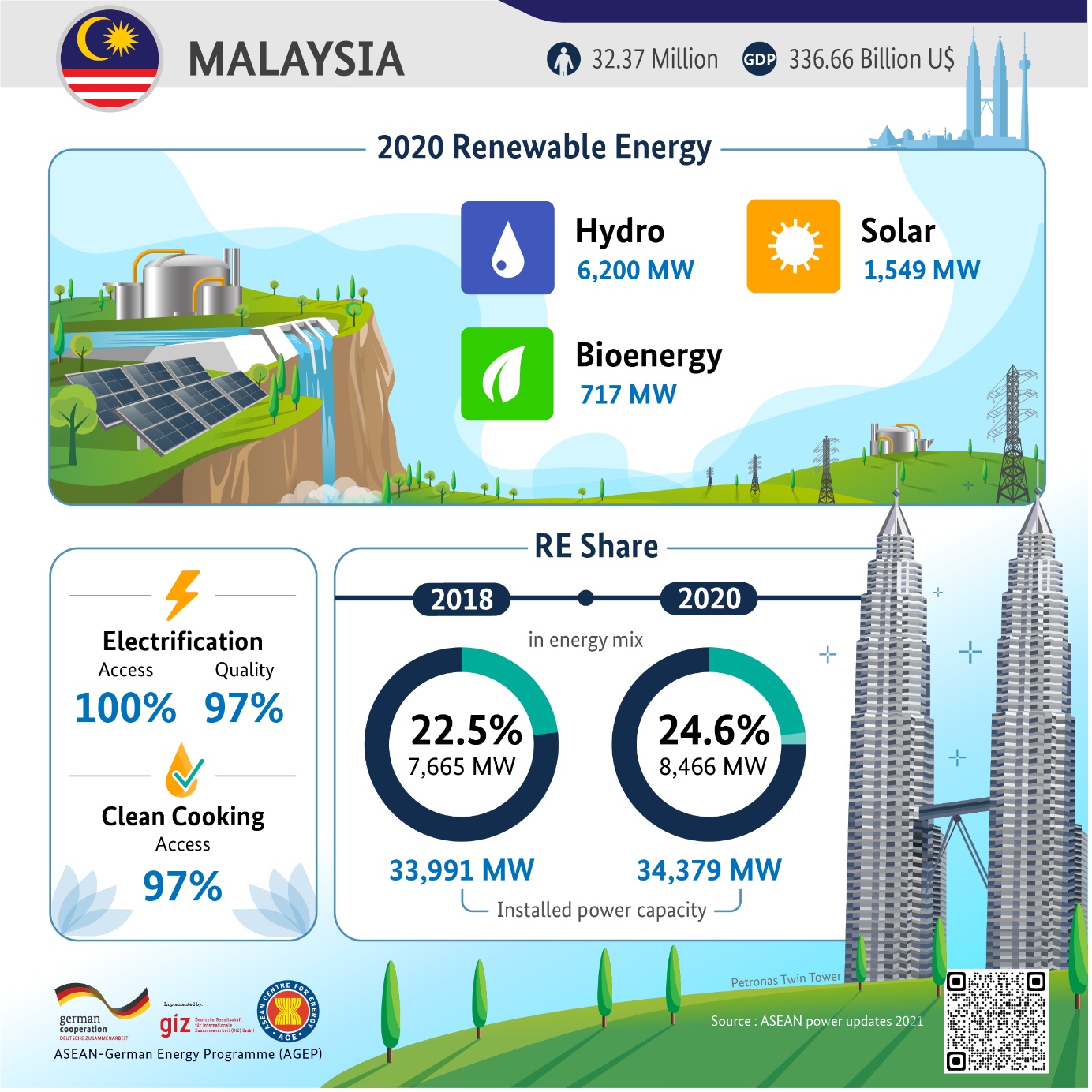Conversion of Agri Poultry Waste Via Hydrothermal Carbonization as Green Electrode for Microbial Fuel Cell

Ir. Dr. Noorashrina Binti A Hamid
Dr. Muaz Mohd Zaini Makhtar
Dried leaves of ficus carcia and chicken manure were converted into hydrochars via hydrothermal carbonisation (HTC) at different temperatures (200, 225, and 250 °C) under three residence times (24, 48, and 72 h). This study was conducted to investigate the effect of temperature and residence time on the production of hydrochars. The physicochemical properties of hydrochars produced from ficus carcia using HTC were also analysed. Experimental results showed that when HTC temperature was increased, a significant decrease in hydrochar yield was observed, along with increased energy content and yield. The highest energy content of 28.813 MJ/kg was obtained when the dried leaves were heated at 250 °C for 72 h, which was 62.72% of increased energy content compared to that of raw dried leaves. The pH values of the hydrochars ranged between 5.0 and 6.8, which were slightly acidic. The scanning electron microscopy results showed that hydrochars have higher porosity and surface area compared to raw dried leaves. The highest surface area of 13.92 m2/g was obtained at 250 °C, with 24 h of residence time. It was found that the physiochemical properties of hydrochars varied significantly with variations in temperature and residence time during hydrothermal carbonisation.
Applicability and Benefits
Furnish waste disposal and pollution related to the waste generated from agricultural and poultry industry. Instead of wasting the waste, it can be transformed into energy producing materials (fuel cell electrode) and eventually provide ease in delinquent of energy in Malaysia.
Research Achievement
Graduated final year student and it was partially funded by Incentive Grant USM.
Commercialization Potential And Industrial Partner
- Biomass waste consists of dried leaves as well as chicken manure can be utilized in producing energy via microbial fuel cell.
- Agriculture and poultry based industry as source for the green electrode.
Intellectual Property Status
On-going IP application.
Status of Invention
Technology Readiness Level 3.
Impact of Innovation
- University: USM will be benefited from the Intellectual Property as well becoming the subject matter expert (SME) for energy storage system specialize in turning waste into electrode for fuel cell.
- Industry: Becomes the focal reference of upscaling the pilot scale project development particularly in solving disposal issue of agricultural and poultry waste.
- Government: Malaysia will have pool of talented resources to cater the new IR 4.0 requirements and attracts local and international investors.
- Environment: Preserving the environment by minimizing the emissions of greenhouse gases as green production of waste into potential electrode for fuel cell.
- Society: Solving air and land pollution related to the agriculture and poultry industry.
